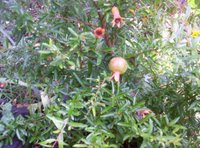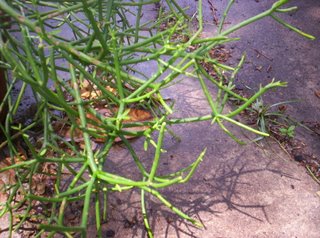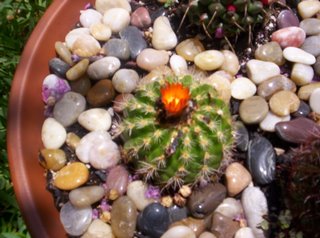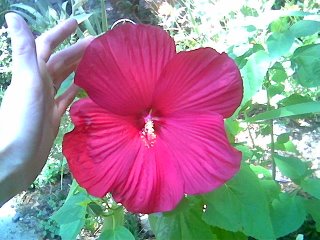Mosquitos
Digging mentions them this morning, as well. I wonder if our lack of a real winter this year has anything to do with the overabundance of blood-suckers?
I’d really like to avoid spraying my back yard with poison, for the sake of my dogs, myself, my husband, and our local water supply. So, I’ve been poking around on the internet for natural ways to eradicate the little bastards.
I’ve noticed Purple Martin houses going up all over town. Word is, these birds can eat something like 2,000 mosquitoes a day and are a great way to control the pests naturally. I took a peek at the local company that’s putting up all of these gourd-type houses: For the low, low, price of $695, you too can host several purple martin families in your backyard. Now, if it works, I’d say it’s worth it. (Of course, you can find cheaper, less esthetically pleasing bird houses online.) However, I soon came across the Purple Martin organization’s website. Here’s what they have to say about the little birds and mosquito control:
“Martins, like all swallows, are aerial insectivores. They eat only flying insects, which they catch in flight. Their diet is diverse, including dragonflies, damselflies, flies, midges, mayflies, stinkbugs, leafhoppers, Japanese beetles, June bugs, butterflies, moths, grasshoppers, cicadas, bees, wasps, flying ants, and ballooning spiders. Martins are not, however, prodigious consumers of mosquitoes as is so often claimed by companies that manufacture martin housing. An intensive 7-year diet study conducted at PMCA headquarters in Edinboro, PA, failed to find a single mosquito among the 500 diet samples collected from parent martins bringing beakfuls of insects to their young. The samples were collected from martins during all hours of the day, all season long, and in numerous habitats, including mosquito-infested ones. Purple Martins and freshwater mosquitoes rarely ever cross paths. Martins are daytime feeders, and feed high in the sky; mosquitoes, on the other hand, stay low in damp places during daylight hours, or only come out at night.”
Now, aren’t you glad I pointed that out? So, on with our search…
According to several sources on the internet (which I’m too lazy to link you to; you know how to use Google if you want to read for yourself), natural predators of mosquitoes include some lizards, dragonflies, damselflies, bats, and some birds (though I’m not sure which ones). Standing water should be dumped at least weekly to prevent larvae from maturing. Fish (including goldfish, koi, and guppies) keep larvae out of ornamental ponds.
Another breeding ground that I haven’t even thought of…
Amy suspects that mosquitoes could be breeding in her rain gutters.
One more thing… mosquitoes are more attracted to dark clothing.
Hope all of this helps those of you that are dealing with stupid freakin’ bugs right now. I’m going to do a little more research on bat houses… If anyone has experience with those, tell me about it. In the meantime, you might want to buy some shares in the company that makes OFF!, since they’ll be making a considerable chunk of dough off of me this year.





































